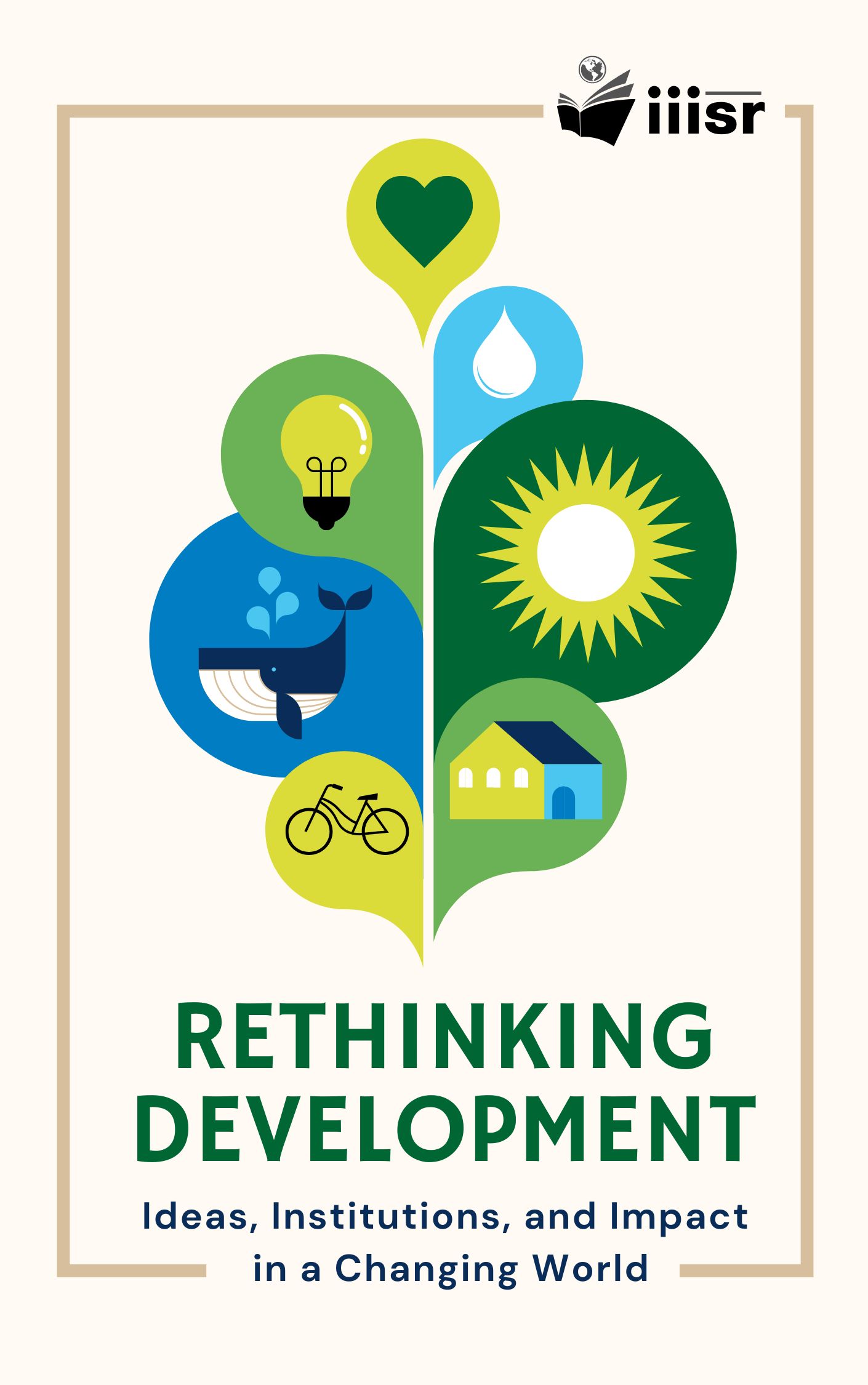Women in Leadership: Rethinking Gender and Power Structures.
Authors: Sumitha, K. J., Deepa, R., & Katharine, B.
| Open Access |
This chapter critically examines the persistent underrepresentation of women in leadership positions across various sectors, framing it as a systemic issue deeply embedded in institutional structures and cultural norms. It employs an intersectional approach, recognizing how factors such as race, class, and caste intersect with gender to shape leadership experiences. The authors argue that merely increasing numerical representation of women in leadership is insufficient; instead, they call for a transformative approach that challenges and reshapes existing power structures. The chapter critiques traditional, masculinist leadership paradigms and advocates for reconceptualizing leadership in more inclusive and collaborative terms. It highlights both formal and informal institutional biases that hinder women’s access to and experiences in leadership roles. By situating women’s leadership within broader debates on power, representation, and institutional reform, this chapter contributes to rethinking development itself, emphasizing the need for more resilient, democratic, and equitable institutions.5
Cite this chapter:
Sumitha, K. J., Deepa, R., & Katharine, B. (2025). Women in Leadership: Rethinking Gender and Power Structures. In Rethinking Development: Ideas, Institutions, and Impact in a Changing World (pp. 24-42). Indian Institute of Industrial and Social Research.
References
Abels, G. (2016). the gender gap in political science education in germany. European Political Science, 15(3), 322–331. https://doi.org/10.1057/eps.2015.80
Ahluwalia, L. (2020). Empowerment leadership and performance: antecedents. Technobiz : International Journal of Business, 3(2), 35. https://doi.org/10.33365/tb.v3i2.837
Al Naqbi, S., & G, V. (2023). Exploring Women’s Leadership Experiences: Challenges, Successes, and the Role of Support Networks. mdpi ag. https://doi.org/10.20944/preprints202304.0230.v1
Attamimy, H. F., Khasanah, I., & Junining, E. (2020). Speech Act Analyisis Of Jacinda Ardern About Covid-19. Elite English and Literature Journal, 7(2), 209. https://doi.org/10.24252/10.24252/elite.v7i2a9
Corbett, C. M., Voelkel, J. G., Cooper, M., & Willer, R. (2021). Pragmatic Bias Impedes Women’s Access to Political Leadership. center for open science. https://doi.org/10.31219/osf.io/5rtbu
Corchia, L. (2018). Critical Theory in Italy in Recent Decades. Zeitschrift Für Politische Theorie, 8(2), 247–270. https://doi.org/10.3224/zpth.v8i2.09
Cudd, A. E. (2022). Feminist Theory (pp. 52–63). routledge. https://doi.org/10.4324/9780367808983-6
Da Rocha Grangeiro, R., Esnard, C., & Bastos Gomes Neto, M. (2022). Women in leadership positions in universities: are they really queen bees? Management Research Review, 46(5), 739–754. https://doi.org/10.1108/mrr-03-2021-0239
Deki, D., & Karma, S. R. (2023). Women teachers’ attitudes and aspirations towards participation in school leadership positions. I-Manager’s Journal on Humanities & Social Sciences, 3(3), 14. https://doi.org/10.26634/jhss.3.3.20180
Denker, K. J. (2021). Critical Feminist Theory (pp. 233–245). routledge. https://doi.org/10.4324/9781003195511-21
Devkota, H. R., Clarke, A., Murray, E., Groce, N., & Kett, M. (2021). Disability, Caste and Intersectionality: Does Co-Existence of Disability and Caste Compound Marginalization for Women Seeking Maternal Healthcare in Southern Nepal? mdpi ag. https://doi.org/10.20944/preprints202103.0115.v1
Dockendorff, A., Gamboa, R., & Aubry, M. (2021). Substantive Representation of Women’s Interests: Chile, 1990–2020. Representation, 58(1), 139–148. https://doi.org/10.1080/00344893.2021.1982757
Draboo, S. (2021). A Commentary on Affirmative Action Policies for Women in India in the Backdrop of International Commitments. MIER Journal of Educational Studies Trends & Practices, 10(1), 15–29. https://doi.org/10.52634/10.52634/mier/2020/v10/i1/1357
Duchek, S., Scheuch, I., & Foerster, C. (2020). Women Leaders’ Resilience: How Women Reach and Succeed in Leadership Positions. Academy of Management Proceedings, 2020(1), 17434. https://doi.org/10.5465/ambpp.2020.17434abstract
Dusabe, J. (2023). Rwanda’s Determining Factors for Equality in Women Leadership. International Journal of Gender Studies, 8(2), 10–19. https://doi.org/10.47604/ijgs.1917
Eswaran, U., Murali, K., Eswaran, V., & Eswaran, V. (2024). Women’s Leadership in Environmental Conservation (pp. 211–244). igi global. https://doi.org/10.4018/979-8-3693-6069-9.ch012
Eweje, G., & Nagano, S. (2021). Introduction: The Gender Equality Debate in Japan—An Overview (pp. 1–12). springer. https://doi.org/10.1007/978-3-030-75154-8_1
Fadlallah, H., & Phillips, R. A. (2020). Governance of Voice in Digital Platforms. Proceedings of the International Association for Business and Society, 31, 24–36. https://doi.org/10.5840/iabsproc2020314
Fenner, A. (2020). “Reach Everyone on the Planet . . .”: Kimberlé Crenshaw and Intersectionality. Feminist German Studies, 36(2), 115–117. https://doi.org/10.1353/fgs.2020.0026
Fu, Y., Zhang, W., Yang, W., & Liao, J. (2023). The Influence of the Development of Feminism on Women’s Self awakening in the 20th Century. Journal of Education, Humanities and Social Sciences, 8, 2485–2491. https://doi.org/10.54097/ehss.v8i.5035
Goldstein, S., & Hawthorne, J. (2021). Knowledge from multiple experiences. Philosophical Studies, 179(4), 1341–1372. https://doi.org/10.1007/s11098-021-01710-4
Hill Collins, P. (2020). Defining Black Feminist Thought (pp. 278–290). routledge. https://doi.org/10.4324/9781003001201-34
Holmes, B., Ibiebele, I., & Nippita, T. A. C. (2024). Gender representation in obstetrics and gynaecology leadership. The Australian & New Zealand Journal of Obstetrics & Gynaecology, 64(6), 635–642. https://doi.org/10.1111/ajo.13878
Hoyer, H. J. H. (2024). The persistent underrepresentation of women in academic leadership. Engineering Education Review, 2(1), 14–15. https://doi.org/10.54844/eer.2023.0494
Jeon, S. H., & Kwon, M. (2020). Ethical work environment and career decisions: Is this relationship moderated by a position of power? Ethics & Behavior, 31(8), 557–574. https://doi.org/10.1080/10508422.2020.1822844
Ji, S., & Yin, W. (2019). D’Angelo conjecture in the third gap interval. cornell university. https://doi.org/10.48550/arxiv.1904.11661
Jørgensen, M. (2023, April 24). What can we learn from surveys on the importance of software development productivity factors? https://doi.org/10.5753/cibse.2023.24690
Kafumukache, M. M. E., Mutemwa, M. M., Kuyela, M. K. M., Masando, D. M., Mubiana, M. P., Ngambi, M. F., Meleki, M. M., & Joseph, M. M. S. (2023). Women Participation in Local Government Decision-Making: A Case Study in Chilenje Ward Three. International Journal of Research Publication and Reviews, 4(10), 3137–3147. https://doi.org/10.55248/gengpi.4.1023.102835
Kalumba, M., Mugala, A., Phiri, C., Kalimaposo, K., Daka, H., & Mulenga-Hagane, L. M. (2023). Navigation Strategies by Women into Decision-Making Positions in the Ministry of Education, Zambia. European Journal of Development Studies, 3(3), 147–155. https://doi.org/10.24018/ejdevelop.2023.3.3.276
Kere, Z., & Awuor, R. A. (2023). The Effect of Emotional Intelligence on Transformational Leadership Styles of INGO Leaders in Ethiopia. Pan-African Journal of Education and Social Sciences, 2(1), 44–55. https://doi.org/10.56893/pajes2021v02i01.05
Khan, J., Zhang, Q., & Salameh, A. A. (2025). Organisational Inequalities and the Myth of Meritocracy: How They Impede Employee Task Performance? International Journal of Psychology : Journal International de Psychologie, 60(1). https://doi.org/10.1002/ijop.70002
Kozuch, S. (2024). A Capabilities Approach Towards Addressing Gender Inequality in Transnational Higher Education Leadership (pp. 1–15). igi global. https://doi.org/10.4018/979-8-3693-2857-6.ch001
Lewis, D., Jones, R., & Williams, L. (2020). A radical revision of the public health response to environmental crisis in a warming world: contributions of Indigenous knowledges and Indigenous feminist perspectives. Canadian Journal of Public Health, 111(6), 897–900. https://doi.org/10.17269/s41997-020-00388-1
Linda Jones, L. J. (2020). Gender inclusion in market systems programming. Enterprise Development & Microfinance, 31(1), 43–56. https://doi.org/10.3362/1755-1986.19-00020
Lituchy, T. R., Melyoki, L., Galperin, B. L., Senaji, T., & Punnett, B. J. (2021). African Women in Leadership (pp. 398–417). igi global. https://doi.org/10.4018/978-1-7998-8592-4.ch023
Mcguire, D., Cunningham, J. E. A., Reynolds, K., & Matthews-Smith, G. (2020). Beating the virus: an examination of the crisis communication approach taken by New Zealand Prime Minister Jacinda Ardern during the Covid-19 pandemic. Human Resource Development International, 23(4), 361–379. https://doi.org/10.1080/13678868.2020.1779543
Mcmaster, J. (2019). Racism, Colonialism, Imperialism (pp. 116–128). routledge. https://doi.org/10.4324/9781315265704-13
Mehta, M. (2018). Women Leaders in Indian Agriculture: Grassroots Perspective (pp. 235–255). springer. https://doi.org/10.1007/978-3-319-68816-9_13
Mitropoulos, A. (2017). Cultural Relativism, Cultural Difference. center for open science. https://doi.org/10.31219/osf.io/xpbv5
Moorosi, P., Reilly, E., & Fuller, K. (2018). Leadership and intersectionality. Management in Education, 32(4), 152–159. https://doi.org/10.1177/0892020618791006
Morgan, M. (2020, July 16). Black Women in Leadership: The Complexity of Intersectionality. https://doi.org/10.34190/igr.20.026
Nentwich, J., Baumgärtner, M. K., Witzig, V., & Chowdhury, N. (2021). Gender Bias in Recruiting. Kvinder, Køn & Forskning, 3, 11–24. https://doi.org/10.7146/kkf.v31i3.128398
Normore, A. H., & Issa Lahera, A. (2020). Social Justice Leadership, Equity, and the Digital Divide. https://doi.org/10.1093/acrefore/9780190264093.013.651
Pande, R. (2017). Strategic Essentialism. 1–6. https://doi.org/10.1002/9781118786352.wbieg1170
Park, S. (2021). Gendered leadership during the COVID-19 pandemic: how democracy and representation moderate leadership effectiveness. Public Management Review, 24(11), 1802–1823. https://doi.org/10.1080/14719037.2021.1937294
Payne-Cardona, M., Leonard, J., Panahi, S., Arnold, L. M., Jaiprasert, S., & Farrell, N. M. (2022). Gender inequality in PGY1 residency leadership positions and conferral of health-system pharmacy professional awards. American Journal of Health-System Pharmacy : AJHP : Official Journal of the American Society of Health-System Pharmacists, 79(13), 1096–1102. https://doi.org/10.1093/ajhp/zxac084
Pelfrey, C. M., Cola, P. A., Gerlick, J. A., Edgar, B. K., & Khatri, S. B. (2022). Breaking Through Barriers: Factors That Influence Behavior Change Toward Leadership for Women in Academic Medicine. Frontiers in Psychology, 13. https://doi.org/10.3389/fpsyg.2022.854488
Phiri, I. A., & Chitando, E. (2023). Women’s Transformative Leadership and Africa’s Holistic Development: The Role of the Churches (pp. 19–34). springer nature switzerland. https://doi.org/10.1007/978-3-031-24736-1_2
Pilon, D. (2021). Beyond codifying common sense: from an historical to critical institutionalism. Studies in Political Economy, 102(2), 101–118. https://doi.org/10.1080/07078552.2021.1949787
Reddy, D. S. (2024). Caste, Race and Ethnicity (pp. 527–538). oxford university. https://doi.org/10.1093/oxfordhb/9780198896715.013.36
Roe, K. (2020). Power, influence, and authority. oxford university. https://doi.org/10.1093/hebz/9780198834304.003.0013
Rohmah, H. S. N. (2020). Woman as Charismatic Leader at Pesantren. Santri: Journal of Pesantren and Fiqh Sosial, 1(2), 189–204. https://doi.org/10.35878/santri.v1i2.246
Ryan-Payseur, B. K., & Freitag, N. E. (2018). Bacillus subtilis Biofilms: a Matter of Individual Choice. MBio, 9(6). https://doi.org/10.1128/mbio.02339-18
Salsabila, F., Hidayat, M., & Rini, R. (2024). STRENGTHENING ACCOUNTABILITY MECHANISMS IN WAQF INSTITUTIONS: A SYSTEMATIC LITERATURE REVIEW. Journal of Sharia Economics, 5(2), 174–194. https://doi.org/10.22373/jose.v5i2.5343
Sauls, L. A. H. (2022). Jacinda Ardern (pp. 13–18). igi global. https://doi.org/10.4018/978-1-6684-2490-2.ch003
Schmelzer, L., Peters, S., Mosiniak, G., & Raina, K. D. (2024). Examining the Relationship Between Meaningful Engagement and Well-Being Across Men and Women. OTJR : Occupation, Participation and Health. https://doi.org/10.1177/15394492241271120
Shekhter, B. (2023). Women and Torah: The Orthodox Jewish Response to Second-Wave Feminism. Iggrot Ha’Ari, 3. https://doi.org/10.52214/iha.v3i1.11619
Shore, L. M., Tetrick, L. E., Coyle-Shapiro, J. A.-M., & Taylor, M. S. (2004). Directions for Future Research (pp. 351–364). oxford university pressoxford. https://doi.org/10.1093/oso/9780199269136.003.0016
Southern, R., & Harmer, E. (2019). Othering Political Women: Online Misogyny, Racism and Ableism Towards Women in Public Life (pp. 187–210). springer. https://doi.org/10.1007/978-3-030-12633-9_8
Spichak, A. V. (2024). DIFFICULTIES OF THE DIVORCE PROCESS OF PEASANTS IN THE EARLY 20TH CENTURY (in terms of Tobolsk diocese). Vestnik of Kostroma State University, 30(1), 45–52. https://doi.org/10.34216/1998-0817-2024-30-1-45-52
Spinelli, L. M. (2020). Contra uma moralidade das mulheres: a crítica de Joan Tronto a Carol Gilligan. Ethic@ – An International Journal for Moral Philosophy, 18(2), 245–262. https://doi.org/10.5007/1677-2954.2019v18n2p245
Tredway, K. (2017). Judith Butler, Feminism, and the Sociology of Sport (pp. 409–425). palgrave macmillan uk. https://doi.org/10.1057/978-1-137-53318-0_26
Van Doorn, G., & Dye, J. (2021). Dark Triad traits as predictors of adherence to traditional masculine norms in men. Primenjena Psihologija, 14(4), 539–569. https://doi.org/10.19090/pp.2021.4.539-569
Verdun, A. (2022). Women’s Leadership in the European Central Bank (pp. 290–308). oxford university. https://doi.org/10.1093/oso/9780192896216.003.0016
Vinyeta, K., & Bacon, J. M. (2024). Backfire: the settler-colonial logic and legacy of Smokey Bear. Environmental Politics, 34(2), 1–26. https://doi.org/10.1080/09644016.2024.2353544
Vrooman, J. C., & Coenders, M. (2020). Institutions of Inclusion and Exclusion. Social Inclusion, 8(1), 178–183. https://doi.org/10.17645/si.v8i1.2935
White, C. R., & Jenkins, D. D. (2017). College students’ acceptance of trans women and trans men in gendered spaces: The role of physical appearance. Journal of Gay & Lesbian Social Services, 29(1), 41–67. https://doi.org/10.1080/10538720.2016.1261749
Zanetti, L., Petrini, L., & Chiffi, D. (2023). Epistemic and Non-epistemic Values in Earthquake Engineering. Science and Engineering Ethics, 29(3). https://doi.org/10.1007/s11948-023-00438-0

